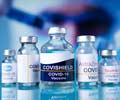Patients with asthma and COPD and live in areas with high levels of air pollution have an increased chance of hospitalization if they contract COVID-19.
- Air pollution affects severity and hospitalization in patients with COVID-19
- Air pollution kills an estimated seven million people worldwide every year
- A one-unit increase in particulate matter 2.5 is linked to a 60% higher chance of hospitalization for COVID-19 patients
"Particulate matter is very small, small enough to be inhaled deep into the lungs, they cross into the blood and also affect other organ systems," says Mendy. "Air pollution as a result of emissions from automobiles, factories or other sources is a generator of particulate matter."
"Our study didn't find any correlation between severity of COVID-19 and particulate matter in general, but we found something for people who had asthma and COPD," says Mendy.
The study's findings were published online in the scholarly journal Respiratory Medicine.
It is the first study to look at an association between air pollution, COVID-19 and individual patients, says Mendy. A study co-author, Xiao Wu, PhD, in the Department of Biostatistics at Harvard University, led a study last year looking at air pollution and COVID-19 mortality in the United States.
Mendy says the findings of his pilot study are preliminary and he hopes to use it to generate support for a larger more comprehensive study of patients. The UC Health patients in the study were diagnosed with COVID-19 between March 13, 2020 and July 5, 2020.
Other study co-authors from UC include Jason Keller, a researcher in the Department of Bioinformatics; Cecily Fassler, PhD, postdoctoral fellow in the Department of Environmental and Public Health Sciences; Senu Apewokin, MD, an assistant professor in the Department of Internal Medicine; Tesfaye Mersha, an associate professor pediatrics; and Changchun Xie, PhD, and Susan Pinney, PhD, both professors in the Department of Environmental and Public Health Sciences. Funding for the study included various grants from the National Institutes of Health supporting researchers.
Source-Eurekalert
















